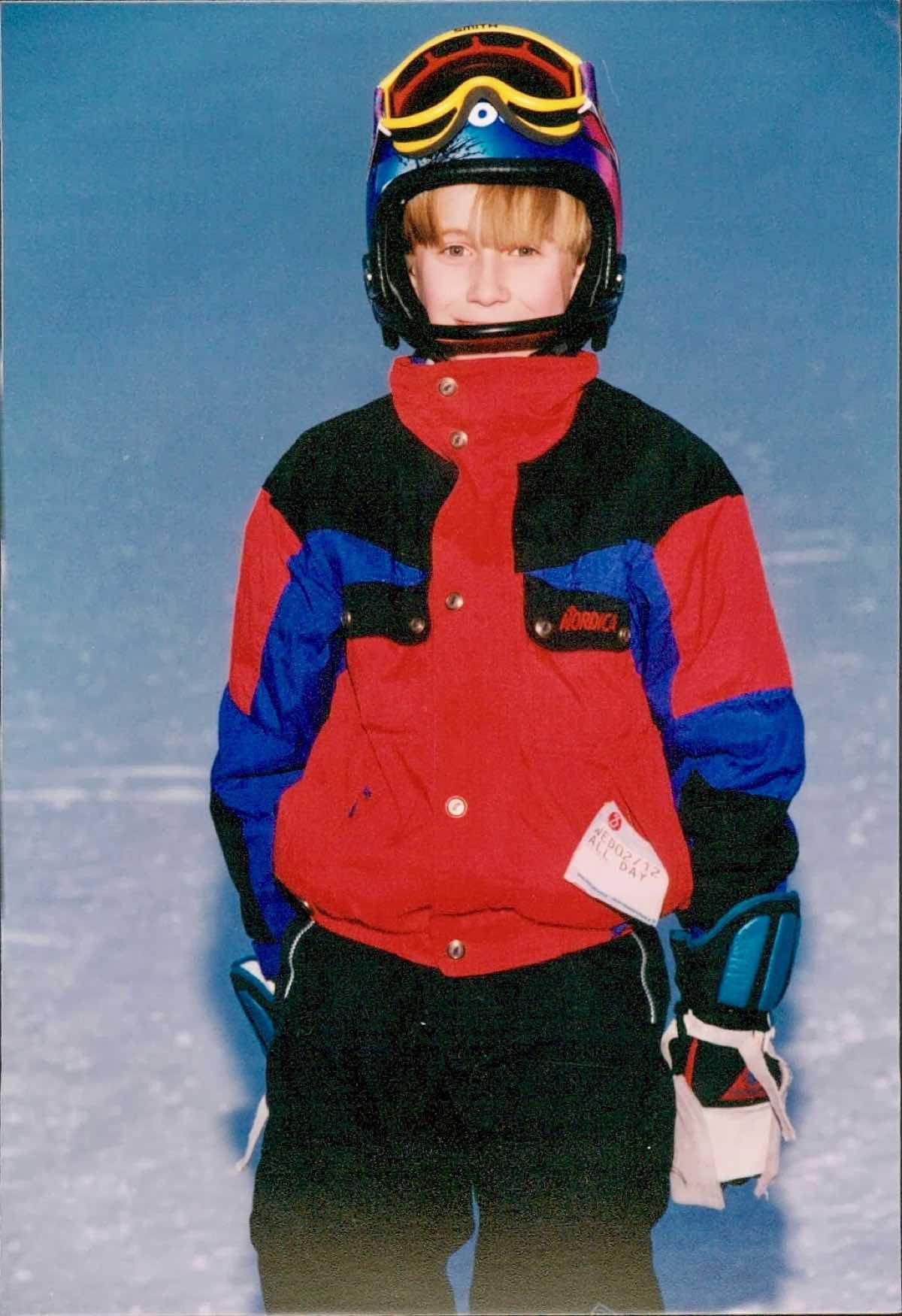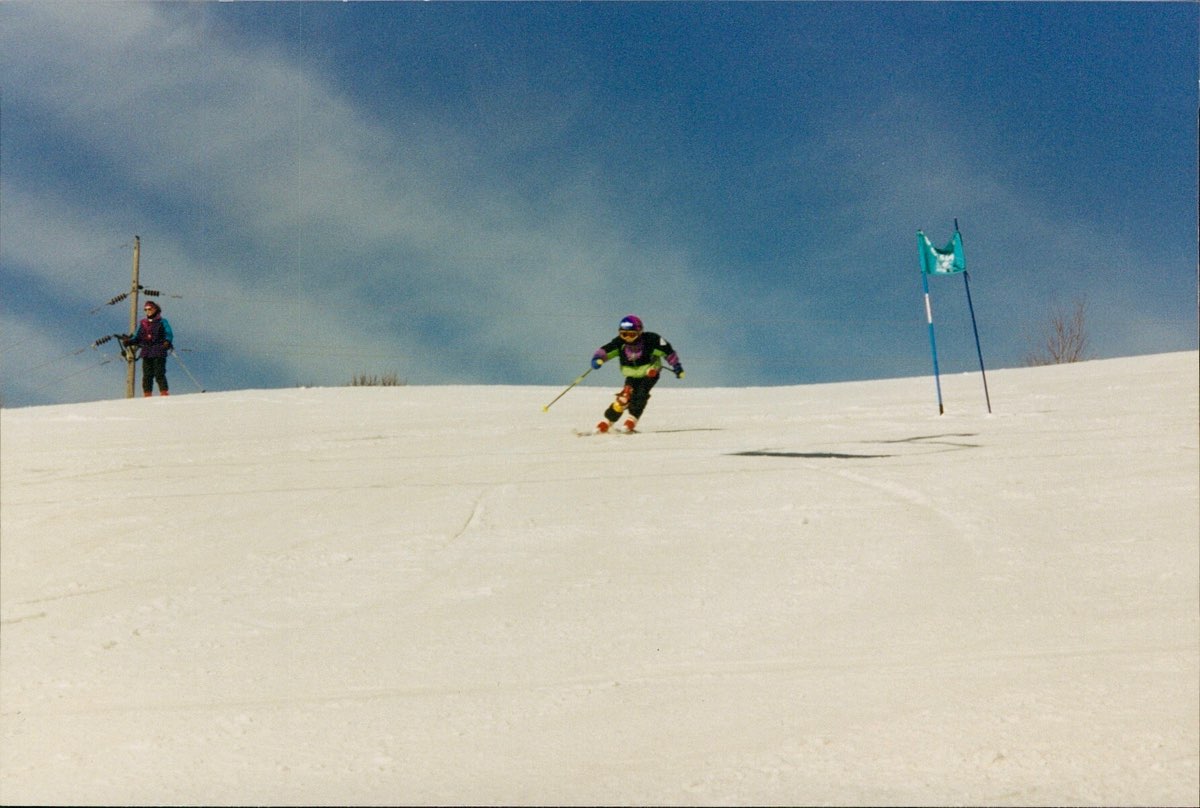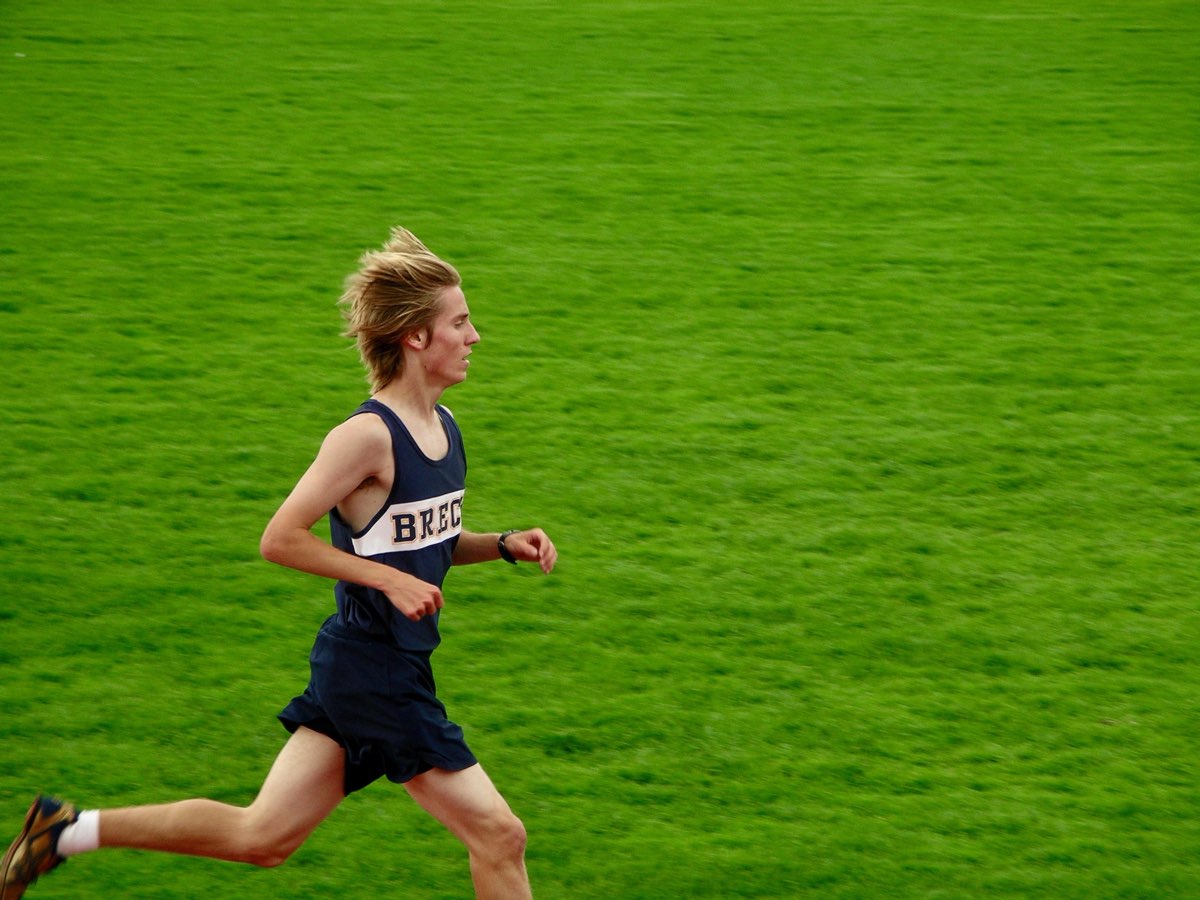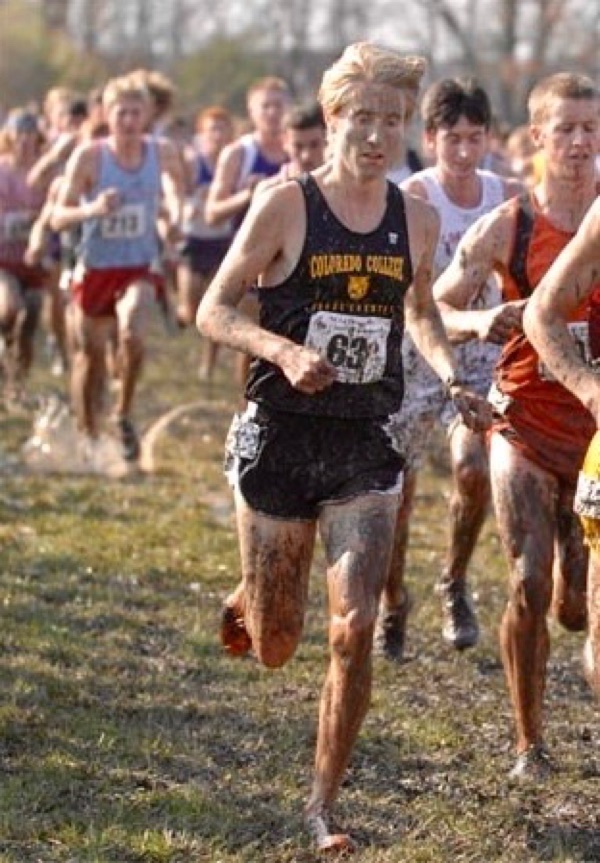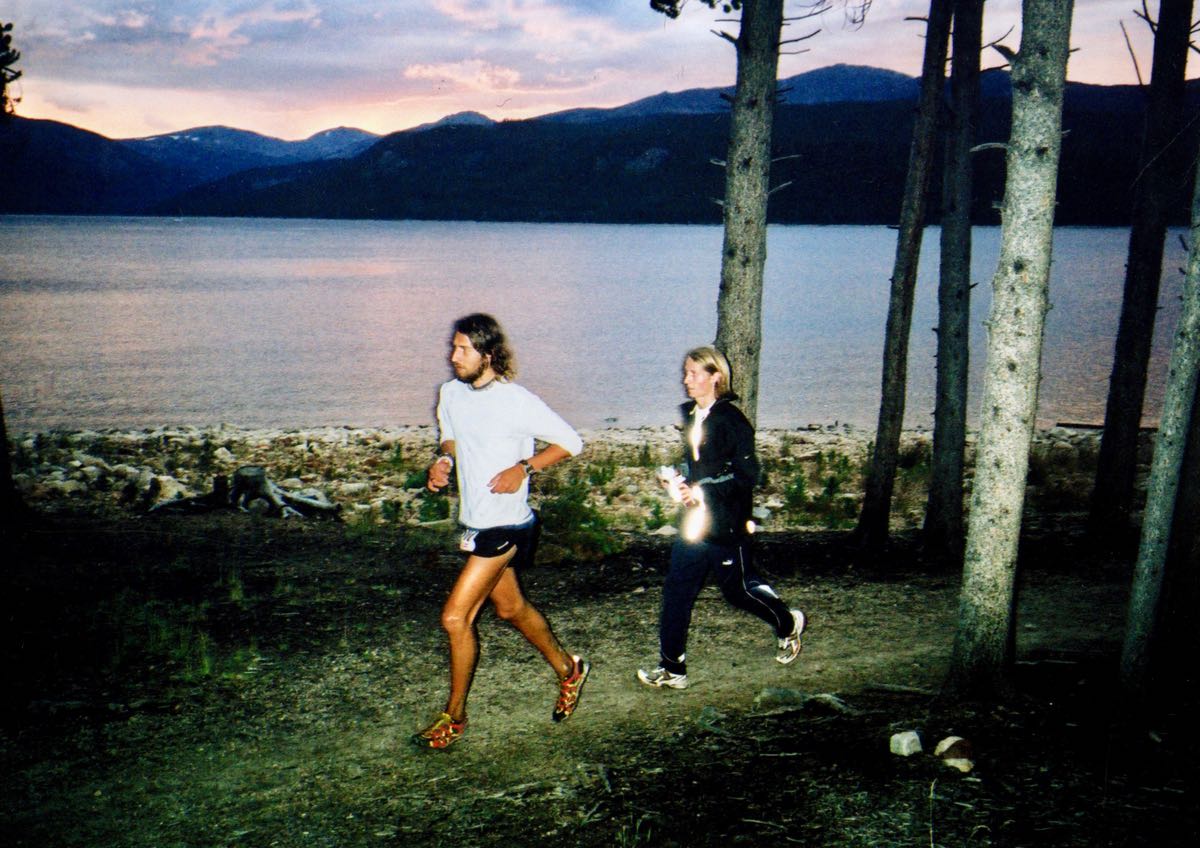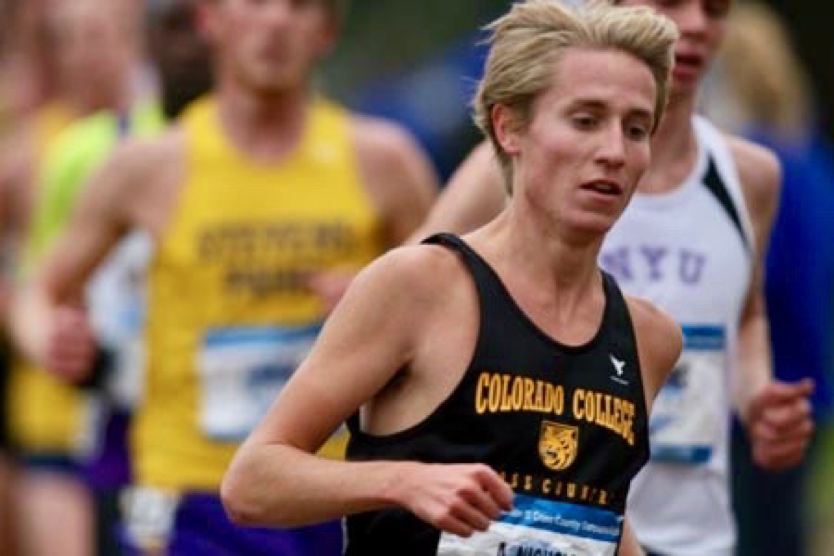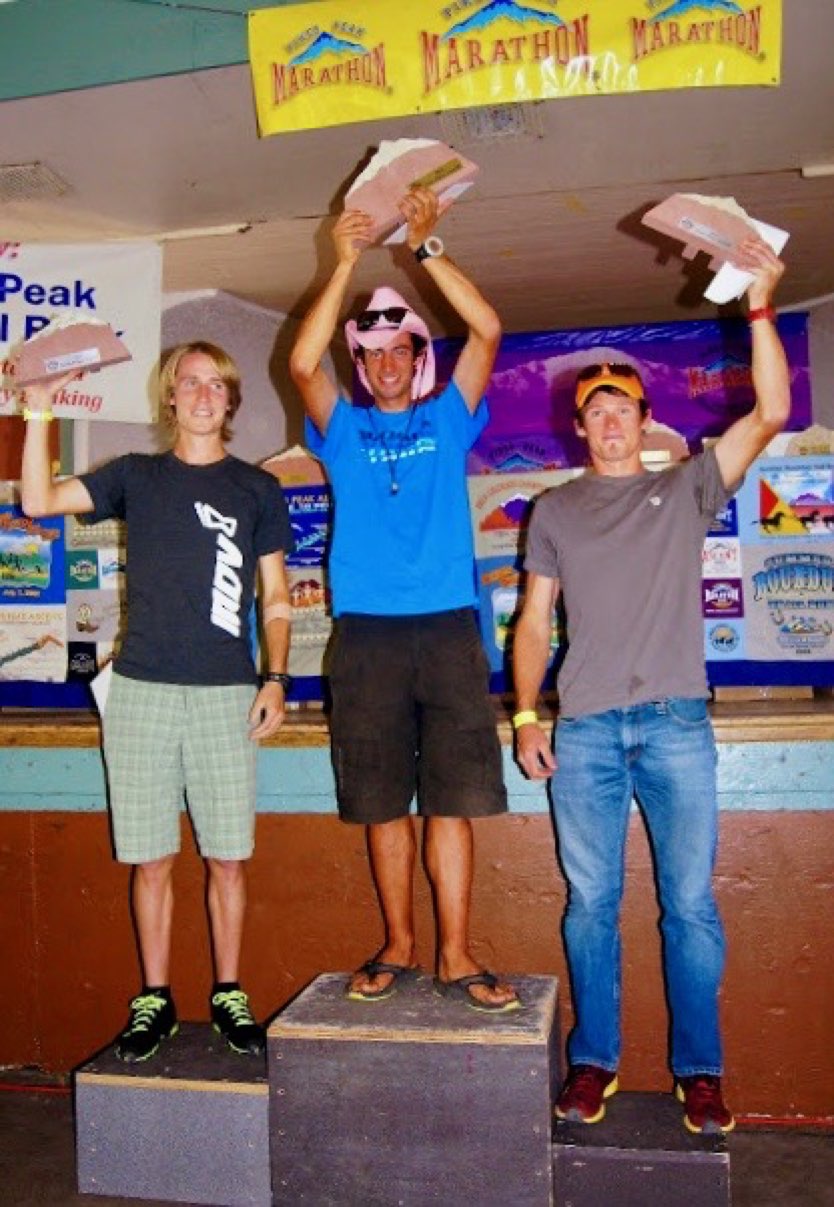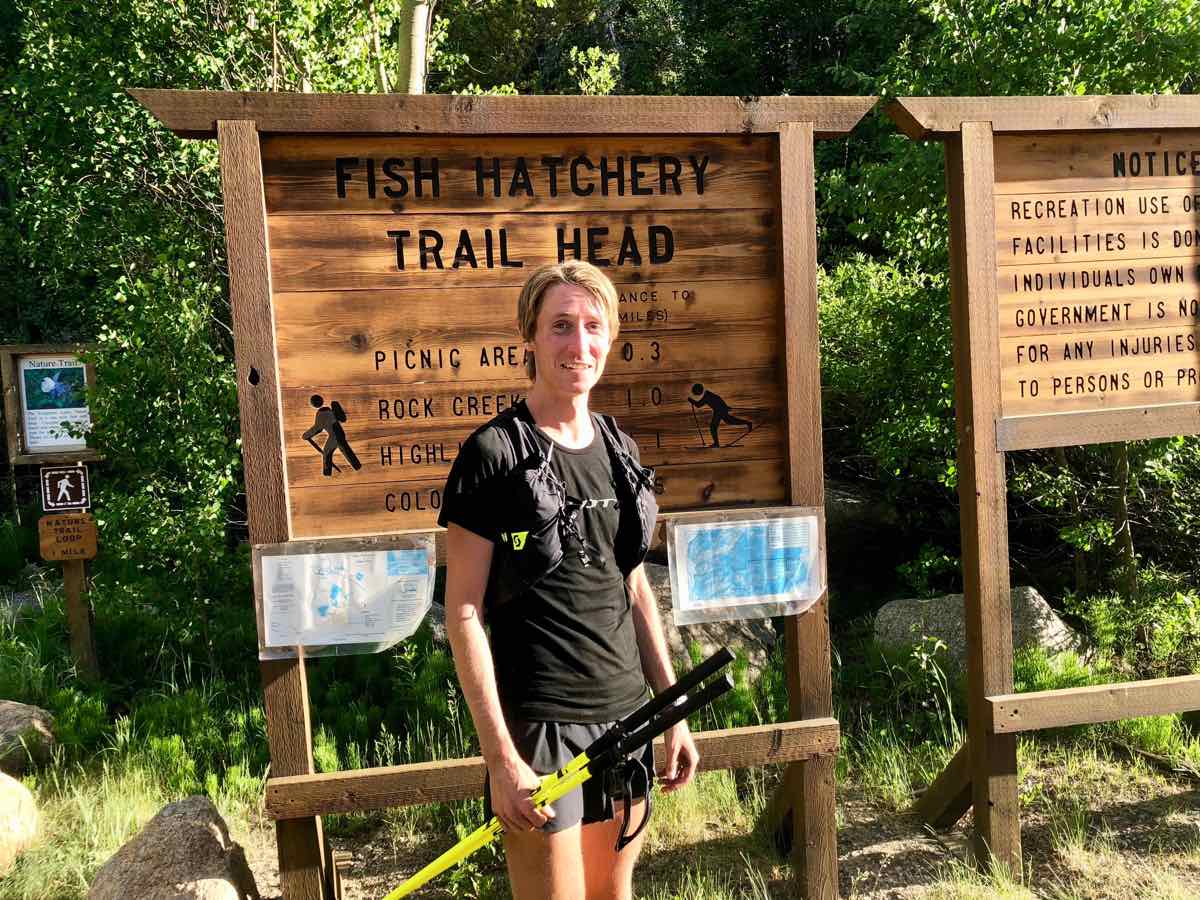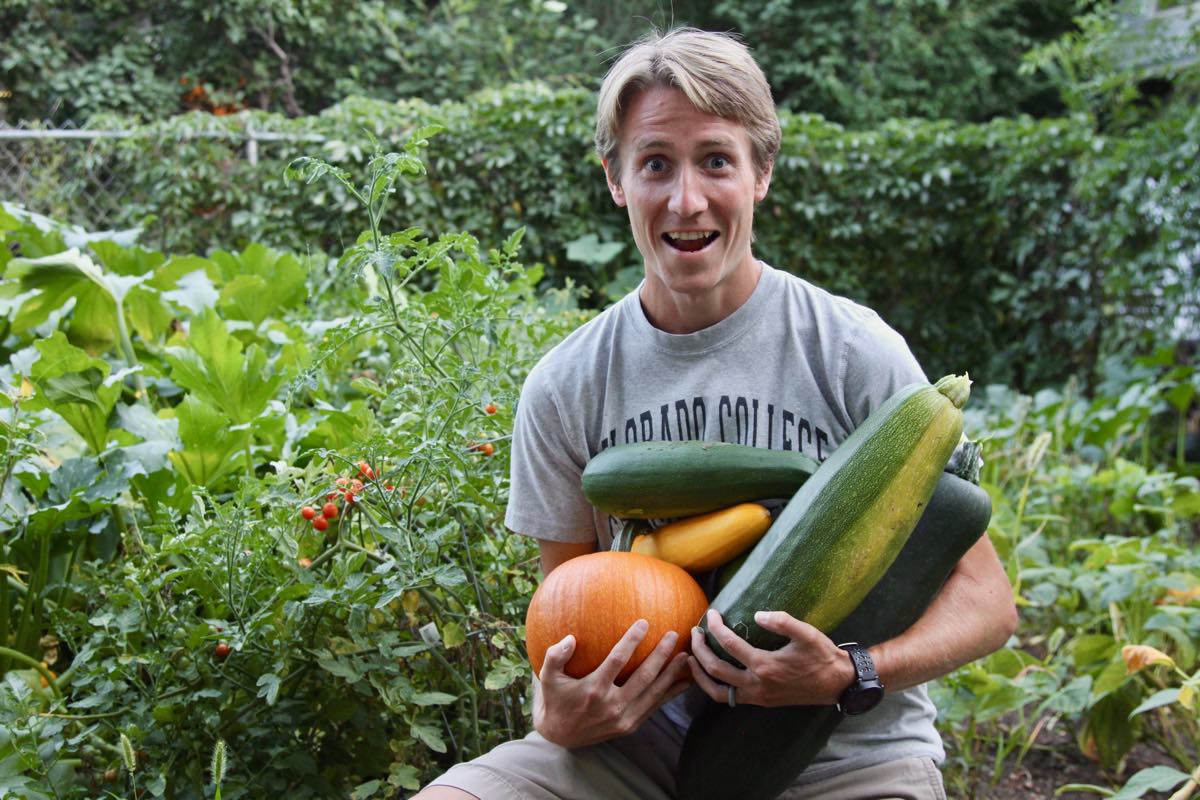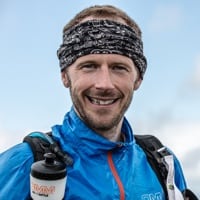When you see Alex Nichols’s name in an iRunFar race preview, what words do you think of next? There’s a good chance it includes: versatility, longevity, dark, and horse. Oh and perhaps: such nice hair–I want to stroke it. (Just me? Oh.)
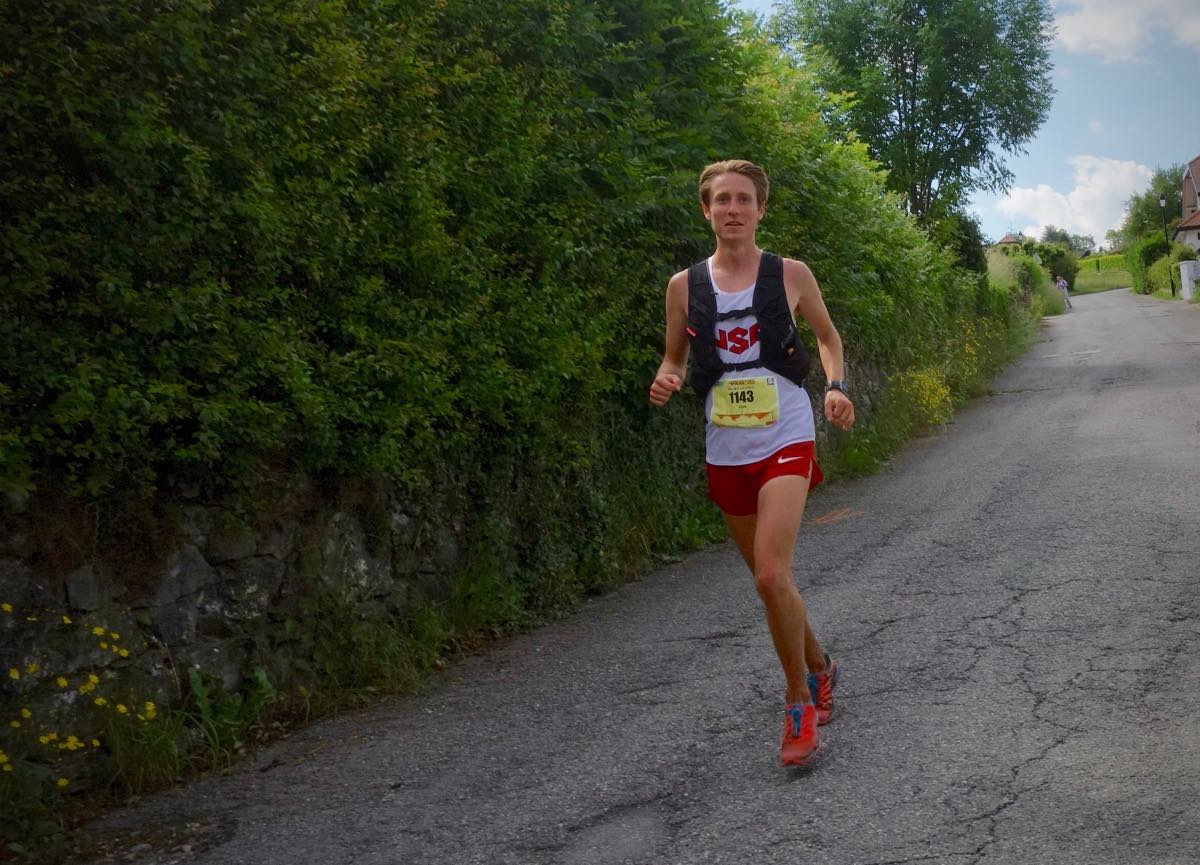
Alex Nichols running toward fifth place at the 2015 Trail World Championships. Photo: iRunFar/Meghan Hicks
Alex has been excelling in the trail running scene for a while. Fans of the sport may or may not know about his penchant for gardening, his filmmaking background, or his awkward three-way relationship with wife Maddy and, ahem, adventure friend Olga.
Alex has been with Olga since 2007, around two years before he met Maddy at a shoe store. “It’s been a mostly harmonious relationship between the three of us,” chuckles Alex. Olga is “brownish burnt orange” 1984 Volkswagen Vanagon, bought on his graduation from college. “Olga’s always been her name. Sometimes the name just fits. The idea was that I could invest in this van and also not have to pay rent. I lived in Olga for nine months or so, until it got a little too cold in the winter.”
Olga’s been great for adventures though. “I’ve got a home anywhere I want to go–it’s my home in the mountains. I’m going to try and hold onto Olga for as long as I can, but she’s not the most glamorous. When I’m trying to get up a mountain pass, I have to crank the heat down or the engine might overheat.”
What about the third person in the triad? Maddy and Alex met when they both worked at the Colorado Running Company in Colorado Springs, Colorado. “It was a gradual thing,” he says. “We went to a concert and some movies and then just spent more and more time together outside of work. I think our first backpacking trip together really marked the start of our relationship, in July of 2010, on the Colorado Trail near Leadville.”
“By nature, Maddy’s not as competitive as I am. We don’t train together much because we have different styles and running motivations. She is the ideal crew though. She’s extremely good at knowing what I need at aid stations and how to go through things quickly. I like to be in and out of aid stations very quickly and she’s very good at making that happen. Every long race I’ve done, she’s been the crew chief.”
When listening to his carefully chosen words and soft demeanor, Alex seems like such a laidback character. It’s hard to imagine this is the same guy who wins some of the world’s toughest mountain races. “Yeah, I think there’s a certain amount of competitiveness that’s not really present during regular life. I really like everything to be planned out in my races. I don’t like to take any chances with new food or a different amounts of calories. It’s good to have someone on that schedule, so when I come into an aid station there’s nothing left to chance. Sudden changes during a race would definitely get to me psychologically. It’s really good to have that consistency in races, so I can worry about other stuff. In all the successful races I’ve had, every single calorie and every single ounce of water is planned out.”
Alex’s attention to detail hints at his long history in sport. He grew up in Minneapolis, Minnesota, which is “not known for its mountains–it’s more cornfields and flatland” (even if it also produced Olympic ski ace Lindsey Vonn). His dad was a ski patroller at Buck Hill in Burnsville, so from the age of four, after half a day at kindergarten, Alex would ski most afternoons and would soon compete for both his school and a separate club at downhill skiing.
At 15 he felt burned out (“it was a lot of time”) and moved into freestyle skiing. It was the same story for several sports he did. “I was competitive, but it would get really serious all of a sudden. It was this big time commitment and the joy would go out of it for me. I did gymnastics too–good gymnasts train for four hours a day. It wasn’t for me.”
Alex credits Colin, the oldest of his two older brothers, for getting him into running. “He was on the cross-country, track, and ski teams in high school. I saw he was doing cross country and thought I’d give that shot. I wanted to be active, but with less pressure. I was ready for something new.”
He remembers his first running practice, in eighth grade, clearly. “It was a surprisingly hilly one. I ran the whole practice–it was about two miles or something–and felt like I wanted to throw up at the top of each hill. I pretended, like, ‘Oh, this is easy,’ but it was extremely difficult. Even when I started running races, it wasn’t something that came to me super naturally. It took a while. I enjoyed the challenge of it though. I remember running five miles and feeling I’d never comprehended running that far.”
When it was time for college, Alex moved west and found his home at Colorado College, a DIII school in Colorado Springs. The 5k was his distance of choice (his PR is 14:45), though he tried the 3k steeplechase in his final year, which turned out to be his best event. (He set a school record that still stands.) He earned DIII All America honors in cross country in his last year of collegiate competition, 2007.
Alex studied for an English Literature major with a focus on film. With friend and fellow filmmaker Brennan Galloway, they decided Colorado College student, friend, and ultrarunner Anton Krupicka would make a good subject for a film, which turned out to be 2007’s “Indulgence: 1000 Miles Under the Colorado Sky.” Explains Alex, “Tony was running the Leadville Trail 100 Mile every year and we thought it was a good story to share as he’s a pretty interesting guy.” Along with Krupicka’s running performance and his blogs about his extreme training methods, “Indulgence” helped catapult the runner to superhero status.
Alex cites Krupicka, who would also be a roommate off and on, as “very influential” in getting him into trail running. “We were good friends and we went running together. I never ran trails growing up, so coming to Colorado Springs was eye-opening and getting to spend those summers in the Leadville area got me interested. I thought Tony’s 100-mile stuff was crazy though. I stuck to short uphill races–I was a terrible downhill runner.”
Of that time, Krupicka says, “Alex and I were always the most adept at our weekly cross-country team long runs in the mountains. He also paced/crewed me at four of my five Leadville 100 runs. Alex was/is a way more talented runner than me. His 5k PR is literally two minutes faster than me. He was always good at running uphill in the mountains, too. That was where our running abilities overlapped. His current ultra aptitude does not surprise me. ”
Alex’s other major film project in college also concerned running and was influential in a less obvious way. It took him to Iten, Kenya, for four months to document the running scene there. “In the United States we pride ourselves on these lush, green lawns we can roll around on, but in Kenya they use the land to help them survive. With all this property we have around us, we could make better use of it than just growing a whole bunch of grass.”
It turned Alex into a keen vegetable grower. “Gardening in Colorado is a little bit difficult, but we’ve got squash, peppers, tomatoes, beans, and stuff like that in our garden. You can grow a lot of food in a small amount of space–people don’t always realize that. It’s mainly for us, but if you have a pumpkin plant and suddenly have six pumpkins, it’s fun to give them away. Once we get to fall harvest, we don’t really need to buy any produce. But I love bread–we still have to buy bread!”
Post-college, filmmaking was his initial focus. “But I followed opportunities and went in another direction.” The other opportunities were running coaching at Colorado College, first as a volunteer, then part time, and now full time for the last three years. “Initially it was an excuse to get some training partners, but after a while it turning it into an actual job.” His students are aged 18 to 22 and not on scholarship, a wide variety of talent levels. “Just to see people improve, whether that be [achieving a] national-qualification mark or taking 30 seconds off their personal best, is really rewarding.”
Alex has a chance to ensure his early experiences of burnout aren’t repeated for today’s promising young runners. “I want to help create lifelong runners, rather than runners who burn out after college. The numbers and positions and finishes aren’t as important as a lifelong love of running. If they love running, they’re going to keep coming to practice and keep improving. I try to introduce them to the trails because it’s a huge advantage to living here. Even if you’re training for 3,000 meters, you can still do a long run in the mountains.”
If it doesn’t sound like Alex’s days are packed full yet, let’s mention that he’s also attending graduate school. He’s currently taking classes at Denver University for a Sports Coaching masters degree.
Which brings us neatly on to those two words: longevity and versatility. The two are very much connected. “Part of of my longevity might be down to the progression into the types of races I’ve done. Starting with uphill races, 12k trail races, skyraces, and finally ultras. I didn’t just jump into 100 milers. I’ve experienced a wide variety of different races. And that’s kind of what it’s all about, trying new things.”
Pikes Peak, the 14,000-plus-foot mountain looming on the west shoulder of Colorado Springs, has played a huge part in Alex’s life. After several shorter races on it, he placed second in the full Pikes Peak Marathon in 2012, one place behind a young Catalan runner. “It feels like it wasn’t that long ago, but I guess it was! I remember being very motivated to train for that race. Kilian Jornet, the best trail runner in the world, was coming to my home town and I thought I’d better be ready for him. I was fairly happy with second. It was one of my first downhill races and doing well made me realize I could run downhill.”
Then came his first ultra, the 2012 The North Face Endurance Challenge 50 Mile Championships. “I was shocked at how fast people were going,” he recalls. “I remember passing Hal Koerner at mile 30 and saying, ‘People are going so fast!’ I was hoping to get top three [he placed fifth] and make some money, but it was a good experience. It was a different type of challenge. I didn’t decide then and there, I’m an ultrarunner. I was a trail runner who did a variety of races.” The next few years brought several 50ks, Skyrunning, and several wins, including becoming the USATF Trail Marathon National Champion and placing third in the Skyrunner World Series Sky category, both in 2013.
The year 2015 turned out to be a leap forward. At the Trail World Championships, Alex placed a stunning fifth overall to help earn a team silver for USA. “I came onto the team as not one of the top runners. David Laney was [UltraRunning Magazine’s North American] Ultrarunner of the Year, Alex Varner was really tearing things up, Tim Tollefson was my roommate at the race. I thought I was the slow runner on the team. But the course really suited me, with lots of ascending and descending.”
He followed that with a win at the prestigious Mont Blanc 80k that same year. “It was a surprise and pretty cool to win just six weeks after the Trail World Champs. It helped me realize what type of races I would have success at–steeper and longer ones.” The year 2015 also brought a win at the Pikes Peak Marathon. “Finally getting the win was a nice feeling of everything coming together. Pikes Peak plays a pretty big role in my running history.”
Indeed, Alex has been summiting the mountain once a month since October of 2017. “It’s been really interesting because you have different weather conditions and different routes and every month has been different. It’s become less and less about training and more about the experience. In June, I took two athletes I coach to the summit and they had never done anything like that.”
Plantar fasciitis hampered Alex early in 2016, but then came his first 100 miler, the 2016 Run Rabbit Run 100 Mile. “It was very intimidating, because it was so long. But once I got into it, the same things I experienced in other races with pacing and so on were true. And it just went very well. Well, from mile 80 I wasn’t able to eat, which was a major issue–but until then it was going very well!”
“What really helped me was a very healthy respect for the distance. That fear helped me to make it a good one. I enjoyed it, I wanted to do more. In Skyrunning, you’re pretty much redlining the entire time. It was nice to get into a race where it was a bit more relaxed, when you’re not pushing with everything you have right from the gun. The longer distance felt more natural to me.” He neglects to mention he won the race, beating a strong field including Sage Canaday, Mark Hammond, and Jeff Browning.
He proved how natural it felt to him again the following year, at the 2017 Western States 100, where he placed second in only his second 100 miler. “It was a hard day! Run Rabbit Run mostly felt like a training run. Western States was the opposite. From the very first downhill my legs didn’t feel good and the trail conditions were horrible, everything was torn up because of the snow. From about mile 15 onward, it was a big struggle. It was a really hot day. I’m surprised it went as well as it did, because it was a painful race.”
Alex has also placed third twice at the highly competitive Les Templiers and second at the Hong Kong 100k. In the summer of 2018, he attempted the Nolan’s 14 (a point-to-point challenge linking 14 peaks over 14,000 feet in Colorado’s Sawatch Range). “The motivation came down to the desire to explore my own backyard. I’ve spent more time in those mountains than most other places in the state, so I already felt like I knew a lot of the peaks. Linking them all together instead of just doing one or two at a time just seemed to make sense. It was way out of my comfort zone at the time, but I liked the fact it was a new challenge for me. In a way, it was kind of like running Run Rabbit Run for the first time–it was a way of pushing myself to try new things and keep running exciting.”
Indeed, he says he went into it with the same approach as Run Rabbit Run. “I was just trying to get under the time limit, which was 60 hours. I’d planned out my splits for about 52 hours and [then FKT-holder] Iker Karrera’s time was 47 hours. In training I was way back from anyone’s time, but on the first mountain I pushed and got up it in a personal-best time, and felt great. I thought I might as well keep rolling.”
He summited 10 of the 14 mountains in just over 24 hours. “Then it started to go downhill pretty quickly! That second night, the lack of sleep and altitude sickness (nausea, headache), that was a veeeeery slow night. The third-to-last summit is an easy one, but if I could have quit then I would have. I felt so bad. I wanted to be done more than anything. Since I was at the top of the mountain I had to keep going anyway and I felt a little better at the bottom. I really didn’t care about the record then–it was extreme discomfort. On the second-to-last mountain, I took a really bad route for the downhill. In less than a mile I lost all of the time I had gained on Iker’s time and panic set in, which got me to really push the final mountain, so I put in as close to a finish kick as you can after 45 hours.”
He set a supported record of 46:41, bettering Karrera’s time by just shy of one hour. “I want to go back and do it better. Though I had rough moments, it’s still an amazing route. I have tough memories but good ones. It’d be good to fix some of my mistakes and do it a lot faster…”
The Nolan’s 14 also seemed like good prep for his first UTMB last year, where many saw him as a dark horse for the podium. But he suffered some seriously bad luck. “In the first 100 meters, someone behind me took my legs out. I landed hard on my left hip. It hurt my IT band and got really tight. It was accidental. It’s just a mad house that first section. It’s 1,000 people sprinting! It was one of those slow-motion moments; I went down and looked behind to see people coming and jumping over me. I got up quickly because of the adrenaline and ran. Eventually that adrenaline wore off and I realized there had been some damage done.”
He will be back in Chamonix, France at the UTMB starting line this August. “I’m feeling really good about it. I did the unofficial John Cappis [35k fat ass] in Silverton recently, which is really steep and off-trail, and I felt amazing. And my training is just where I want it to be. Knock on wood, finally things are going to work out for me…”
He admits he’s “not a huge fan” of the razzamatazz out there–and perhaps his relative shyness on social media is why he seems like a dark horse. “It’s great to see the excitement for the race. But the week before is pretty overwhelming. I don’t mind being recognized as a runner on the street, but at the same time that’s not my favorite thing to do, take pictures with people. I like to be more low-key. It’s just a very different atmosphere to what I’m used.”
Social media too, he describes as: “There’s a need to fulfill obligations, even when I don’t necessarily want to. But I guess part of getting these opportunities to do these big races is letting people know a little bit more about myself. I do my best. But it’s definitely not a favorite pastime of mine.”
Thankfully we now know what is: gardening and trying to keep the relationship between himself, Maddy, and Olga harmonious.
Call for Comments (from Meghan)
Calling all Alex Nichols stories! Leave a comment to share your story of running, racing, and adventuring with Alex. Thanks!
